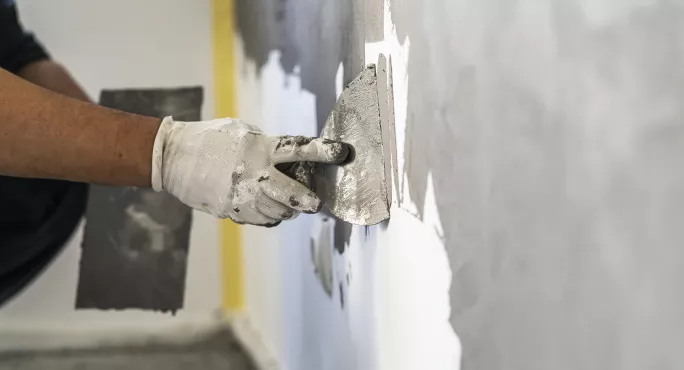School maintenance backlog stands at £13.8bn, says watchdog

The National Audit Office (NAO) estimates it would cost at least £13.8 billion to address the repairs and remedial work backlog across English schools.
Its Maintaining public service facilities report, out today, reveals that five of the government’s main departments, including the Department for Education, have identified “property failure, safety or suitability” as a principal risk.
The true cost of full remediation is unknown, but the Office of Government Property says in the report that the figure could be substantially higher, because government data on the condition of properties is “incomplete and out of date”.
‘Lack of comprehensive strategy’
The report states: “The combination of incomplete data and the lack of a comprehensive strategy around asset management hinder the government’s ability to make effective funding decisions.”
It also notes that building failures have affected the delivery of public services, the productivity of the government and its ability to withstand shocks.
The report reveals that in its case for the 2020 Spending Review, the DfE recommended £5.3 billion a year as the capital funding required to maintain schools and mitigate the most serious risks of building failure once it had expanded its school rebuilding programme.
Since it would take time to achieve this expansion, the DfE requested an average of £4 billion a year for 2021 to 2025; that year, the Treasury allocated an average of £3.1 billion a year.
- Repairs: DfE to spend nearly £5m researching risks of older school buildings
- RAAC: Nick Gibb: ‘We had to blow up the concrete’
- Safety: More than 100 schools advised to close buildings due to concrete risk
DfE figures are based on data collected between 2017 and 2019 and do not account for any subsequent investment to improve schools or any deterioration of their condition. It does not take into account the cost of repairs to more than 100 schools identified in February 2024 as being at risk because of defective reinforced autoclaved aerated concrete, usually referred to as RAAC.
A new data-collection exercise is due to be completed in 2026. The DfE does not own or directly manage schools and is not the custodian of schools, but some 34 per cent of the government’s total property portfolio consists of academy schools; that is, the schools are government owned, but not DfE owned.
The report recommends that the government mandates departments to introduce a standardised definition of the maintenance backlog, so that a true figure can be calculated.
Departments should also be asked to produce long-term property plans, setting out capital needs and a plan to reduce their backlog, and include data on the maintenance backlog in the government’s regular State of the Estate reports from 2026-27 onward.
The report asks departments to consider - before the next Spending Review - how the backlog could be tackled by, for example, agreeing longer-term settlements for property investment or encouraging a thematic approach to bids that tackle similar problems across government property.
NAO report ‘lays bare scale of neglect’
Julia Harnden, funding specialist at the Association of School and College Leaders (ASCL), said the report “lays bare the scale of government neglect of the school and college estate”.
She added: “Recent government investment looks tiny compared with the cuts that have taken place over the past 15 years and the level of need this has inevitably created down the line.”
ASCL agrees with the NAO’s recommendations, but Ms Harnden said that “we also need the Treasury to support the plan with investment”.
Departments attribute rising backlogs to various factors, including the cost of work increasing, several buildings requiring replacement simultaneously, lost income from the pandemic and historic underinvestment.
The Cabinet Office has estimated that deferring backlog maintenance can increase costs by more than 50 per cent over two to four years.
The government said it was taking “immediate action to remedy the state of disrepair found across the public estate, which is the result of long-term underinvestment in maintenance and upkeep”.
A spokesperson added: “We are already investing billions of pounds to deliver critical repairs and rebuild our public services to tackle maintenance backlogs and improve our schools, hospitals and prisons as we deliver on the Plan for Change.”
For the latest education news and analysis delivered every weekday morning, sign up for the Tes Daily newsletter
Register with Tes and you can read two free articles every month plus you'll have access to our range of award-winning newsletters.
Keep reading with our special offer!
You’ve reached your limit of free articles this month.
- Unlimited access to all Tes magazine content
- Save your favourite articles and gift them to your colleagues
- Exclusive subscriber-only stories
- Over 200,000 archived articles
- Unlimited access to all Tes magazine content
- Save your favourite articles and gift them to your colleagues
- Exclusive subscriber-only stories
- Over 200,000 archived articles



